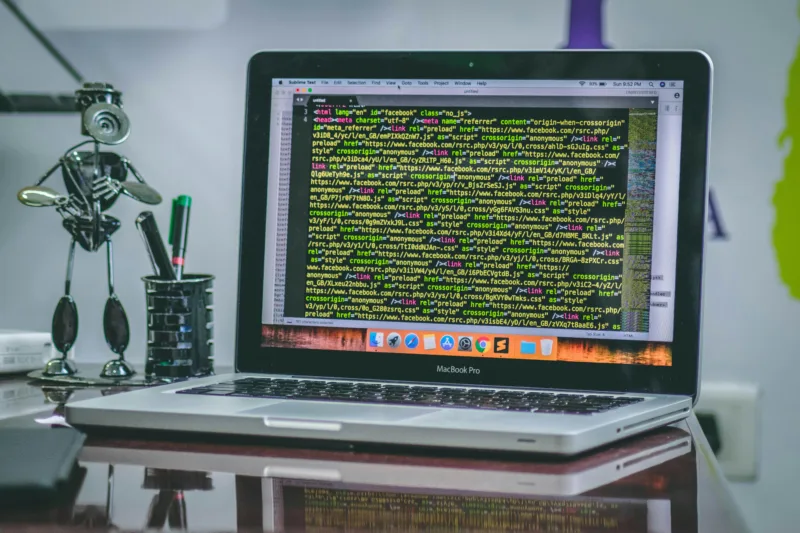In today’s digitally driven world, developers are the invisible architects behind the scenes. From the apps on your smartphone to the websites you browse, developers breathe life into the software that shapes our daily interactions.
But what exactly does a developer do? This comprehensive guide delves into the multifaceted world of developers, exploring their responsibilities, the various specializations within the field, and the skills required to navigate this dynamic career path.
Unveiling the Developer’s Toolbox: Core Responsibilities
At the heart of a developer’s role lies the ability to translate ideas into functional software applications. This process typically involves several key steps:
Understanding Requirements
Developers work closely with clients, stakeholders, or product managers to understand the desired functionalities and features of the software. This initial phase involves gathering requirements, identifying user needs, and outlining the overall project scope.
Designing and Planning
With a clear understanding of the project goals, developers design the software’s architecture. This includes selecting the appropriate programming language, outlining the data structures, and defining the application’s overall flow.
Writing Code
This is where the magic happens! Developers write code using specific programming languages to bring the design to life. Different languages cater to different functionalities – from building mobile apps (Swift, Java) to creating websites (JavaScript, Python).
Testing and Debugging
No software is perfect. Developers meticulously test their code to identify and fix errors (bugs) that might hinder functionality. This iterative process ensures the software performs as intended.
Deployment and Maintenance
Once thoroughly tested, the software is deployed for users to interact with. However, the developer’s job doesn’t end there. They are often responsible for ongoing maintenance, addressing bugs reported by users, and implementing updates as needed.
These core responsibilities form the foundation of a developer’s role. However, the specific tasks can vary depending on the developer’s specialization.
A Spectrum of Expertise: Developer Specializations
The developer landscape is vast and diverse, offering a plethora of specializations to cater to specific needs. Here’s a glimpse into some of the most common developer roles:
Front-End Developer
The magicians behind the user interface (UI), front-end developers craft the visual elements and interactive features users experience when interacting with an application or website. Languages like HTML, CSS, and JavaScript are their tools of choice.
Back-End Developer
Working behind the scenes, back-end developers focus on the server-side logic that powers applications. They ensure smooth data processing, interaction with databases, and overall application functionality. Languages like Java, Python, and PHP are commonly used.
Full-Stack Developer
These versatile jacks-of-all-trades possess expertise in both front-end and back-end development. They can handle the entire development process, from crafting the user interface to building the server-side logic.
Mobile App Developer
As the name suggests, mobile app developers specialize in creating applications specifically for smartphones and tablets. They navigate the unique requirements of different operating systems like Android and iOS.
Web Developer
Focused on web applications, web developers build interactive experiences accessible through a web browser. They understand the intricacies of web technologies and languages like HTML, CSS, and JavaScript.
Software Engineer
Software engineers combine strong coding skills with a deep understanding of computer science principles. They design, develop, test, and maintain complex software systems, often playing a lead role in large-scale projects.
Data Scientist
At the intersection of coding and data analysis, data scientists leverage their programming expertise to extract insights from large datasets. They develop algorithms, build data pipelines, and utilize machine learning techniques to solve complex problems.
This list is not exhaustive, and new specializations emerge as technology evolves. However, it provides a foundational understanding of the diverse landscapes within the developer world.
Essential Skills for Success
To thrive in the dynamic world of development, a specific skillset is crucial. Here are some of the key attributes a successful developer should possess:
Technical Skills
This is the cornerstone of a developer’s skillset. Proficiency in programming languages relevant to their chosen specialization is essential.
Understanding software development methodologies (Agile, Waterfall) and familiarity with version control systems (Git) are valuable assets.
Problem-Solving Skills
The ability to identify and solve complex problems is a must. Developers often encounter unexpected challenges, and critical thinking skills are crucial for finding creative solutions.
Analytical Skills
Developers need to analyze requirements, user behavior, and software performance to ensure their code is efficient and meets user needs.
Communication Skills
Effective communication is key. Developers collaborate with designers, project managers, and clients. The ability to articulate technical concepts clearly and concisely to both technical and non-technical audiences is crucial for successful collaboration.
Lifelong Learning
The tech industry is constantly evolving. Developers need to be adaptable and embrace a growth mindset. Continuous learning through online courses, attending tech conferences, and staying updated with the latest trends is essential.
Teamwork
Software development is rarely a solitary endeavor. Developers often work within teams, collaborating effectively with colleagues to achieve project goals.
Attention to Detail
A keen eye for detail is vital. Developers need to write code that is not only functional but also clean, well-organized, and easy to understand for themselves and others.
Educational Paths for Aspiring Developers
There’s no single path to becoming a developer. Here are some of the educational options to consider:
- Formal Education: A computer science degree equips you with a strong foundation in programming languages, algorithms, data structures, and software development principles. However, this path isn’t mandatory.
- Bootcamps: Intensive bootcamps offer a fast-paced and immersive way to learn the necessary skills for a specific development role. They can be a great option for career changers or those seeking to quickly enter the workforce.
- Online Courses: Numerous online platforms offer comprehensive courses and tutorials on various programming languages and development concepts. This allows for a flexible learning schedule and caters to different learning styles.
- Self-Learning: The internet is a treasure trove of resources for aspiring developers. With dedication and discipline, self-learning through online tutorials, open-source projects, and personal coding challenges can be a viable path.
Regardless of the chosen path, building a strong portfolio showcasing your skills and projects is essential for landing your first developer job.
The Developer’s Work Environment and Career Outlook
The developer’s work environment can vary depending on the company and industry. Here’s a glimpse into some common work settings:
- Tech Startups: Fast-paced and dynamic, startups offer opportunities to work on cutting-edge technologies and wear multiple hats.
- Large Tech Companies: These companies offer competitive salaries, comprehensive benefits packages, and the chance to collaborate with talented developers on large-scale projects.
- Freelancing: For those seeking flexibility and independence, freelancing allows developers to work on various projects for different clients.
The career outlook for developers is promising. The US Bureau of Labor Statistics projects a 13% job growth rate for software developers, computer programmers, and web developers between 2022 and 2032, much faster than the average for all occupations.
This growth is fueled by the ever-increasing demand for software applications across all industries. As technology continues to integrate into our lives, the need for skilled developers will only intensify.
Frequently Asked Questions (FAQs)
What are the best programming languages to learn for a developer career?
The best language depends on your specialization. However, some popular choices include Python (versatile and beginner-friendly), Java (widely used for enterprise applications), JavaScript (essential for web development), and Swift (for iOS app development).
Do I need a computer science degree to become a developer?
While a degree can be beneficial, it’s not mandatory. Many developers come from non-traditional backgrounds, acquiring skills through bootcamps, online courses, or self-learning.
Is coding hard to learn?
Coding requires dedication and practice, but it’s a learnable skill. With the abundance of resources available, anyone with a passion for problem-solving and a growth mindset can develop their coding skills.
What are the soft skills essential for developers?
Strong communication, teamwork, and time management skills are crucial for success. Additionally, adaptability and a willingness to learn continuously are essential in this ever-evolving field.
How much do developers earn?
Developer salaries vary based on experience, location, specialization, and company size. However, the Bureau of Labor Statistics reports a median annual wage of $105,500 for software developers and computer programmers as of May 2022.
By demystifying the developer’s domain, exploring various specializations, and outlining the skills and educational pathways, this comprehensive guide empowers you to navigate the exciting and ever-evolving world of software development.
Remember, the journey to becoming a developer is an ongoing process of learning, adapting, and creating






